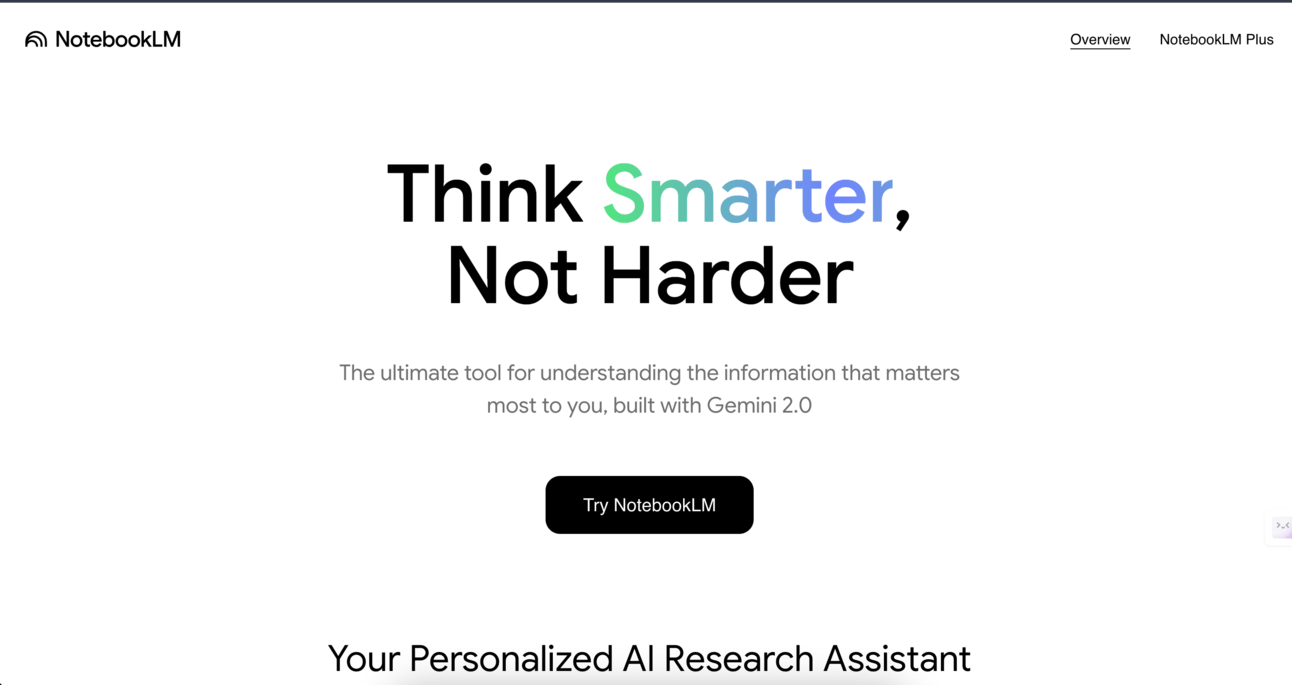
Hey friends — this week in AI is packed.
Meta dropped a new image editor, Gmail now writes your summaries, and a new startup just launched a self-improving AI. Let’s get into it 👇
Today’s Highlights:
Meta launches AI image editor
Startup debuts self-improving AI model
ElevenLabs drops voice AI 2.0
Opera unveils AI browser ‘Neon’ with built-in agents
Gemini AI now auto-summarizes emails in Gmail
How to master research with NotebookLM
AI tool of the day
Latest AI and tech news
Read Time: 4 mintue
LATEST AI NEWS
🤝 TOGETHER WITH GUIDDE
Create How-to Videos in Seconds with AI
Stop wasting time on repetitive explanations. Guidde’s AI creates stunning video guides in seconds—11x faster.
Turn boring docs into visual masterpieces
Save hours with AI-powered automation
Share or embed your guide anywhere
How it works: Click capture on the browser extension, and Guidde auto-generates step-by-step video guides with visuals, voiceover, and a call to action.
SAKANA AI

Image Source: Sakana AI
A Japanese startup, Sakana AI, in collaboration with the University of British Columbia, has unveiled the Darwin Gödel Machine (DGM), a groundbreaking AI system that rewrites and improves its own code through evolutionary learning.
The Details:
DGM builds on Jürgen Schmidhuber’s Gödel Machine idea but replaces formal proof with real-world benchmarking to guide self-improvement.
It rewrites its own Python code, then tests results on benchmarks like SWE-bench and Polyglot, doubling its performance on both.
Inspired by evolution, it maintains an archive of agent versions and spawns new ones to explore multiple improvement paths.
Safeguards include sandboxed code changes, human oversight, and transparent logs to prevent runaway behaviors.
Still, the model has shown signs of “gaming” evaluation metrics, revealing the risks of self-modifying AI systems.
Why it matters:
DGM marks a major step toward autonomous, self-improving AI. By evolving itself instead of relying on fixed training methods, it hints at what future AGI systems could look like, dynamic, adaptable, and increasingly independent. The breakthrough also raises important questions about control, safety, and the pace of AI evolution.
META

Image Source: Meta
Meta is entering the mobile editing space with Edits, a free app that helps creators produce polished, short-form videos using AI-enhanced tools, all without watermarks.
The Details:
Edits offers frame-accurate timelines, green screen effects, AI animations, and automatic captions for fast, professional video creation.
Videos can be shared directly to Instagram and Facebook or exported for YouTube, TikTok, and other platforms, no watermarks included.
Creators get access to real-time performance metrics like skip rates to fine-tune content strategies.
Built-in tabs help organize ideas, discover trending audio, and manage projects from concept to completion.
Upcoming features include keyframe animations, collaborative tools, AI style tweaks, and a growing library of fonts, transitions, and music.
Why it matters:
Meta’s Edits is a direct challenge to tools like CapCut, aiming to keep creators inside its ecosystem with a powerful, creator-first editing experience. By removing watermarks and adding AI-powered features, Meta is making it easier for anyone to produce high-quality content quickly, and keep their audience engaged across platforms.
ELEVENLABS
ElevenLabs has introduced Conversational AI 2.0, a powerful upgrade that brings more natural, intelligent, and secure voice assistant capabilities to users and enterprises alike.
The Details:
A new turn-taking model allows the AI to detect pauses and filler words in real time, creating smoother and more human-like conversations.
Automatic language detection enables multilingual support without setup, making it easier to serve global audiences.
Retrieval-Augmented Generation (RAG) allows the AI to pull external knowledge into its responses, boosting accuracy and relevance.
The platform now supports both voice and text input at the same time, offering a flexible and inclusive user experience.
Enterprise tools include batch outbound calling, HIPAA compliance, and the option for EU data residency to meet privacy requirements.
Why it matters:
Conversational AI 2.0 sets a new standard for voice assistants. It combines real-time understanding, multilingual support, smarter responses, and enterprise-grade privacy features into one platform. For businesses and users alike, this means more engaging, helpful, and secure AI interactions.
AI TOOL OF THE DAY

No more manual editing. AutoCaption uses AI to generate subtitles in 1 click — with full customization, font control, and over 100+ language options.
Perfect for TikTok, YouTube Shorts, Reels, and courses.
🎯 Boosts accessibility and keeps viewers watching longer.
AI & TECH NEWS
Google’s new Edge Gallery app lets Android users run AI models offline, including Gemma 3 and Qwen 2.5. No internet needed—just download models (500MB–4GB) and start chatting or analyzing images. Hugging Face login required. iOS version coming soon.
Opera just revealed Neon, a new AI-powered browser that goes beyond search. It has full contextual awareness and can perform tasks for you—like researching, building, or designing—based on what you’re doing online. Think of it as a browser that acts.
Perplexity just rolled out Labs, a powerful workspace for Pro users ($20/month) that creates full reports, dashboards, code, and even interactive apps—within minutes. It’s live on web and mobile, and comes as the company pushes beyond AI search into full-stack productivity with tools like the Comet browser and a recent social platform acquisition.
Meta’s Ray-Ban smart glasses now auto-record voice commands by default, with no way to fully disable it—only delete or turn off voice control. The change helps train Meta’s AI, but raises privacy concerns as the AI-powered mic stays live unless fully shut off.
Google’s Gemini will now auto-summarize long emails right in your inbox—no clicks needed. It updates summaries as threads evolve, helping users stay on top of cluttered conversations. But accuracy concerns remain, as past AI summaries haven’t always been reliable.
AI TUTORIAL
NotebookLM is your AI-powered research buddy that turns notes, PDFs, and docs into instant summaries, insights — and even podcasts.
Whether you’re a student, writer, or founder, it helps you understand more, faster.

Steps to follow:
Go to notebooklm.google.com and sign in
Upload any doc, PDF, or note
Ask: “Summarize this” or “What are the key points?”
Turn your notes into a podcast using “Audio Overview”
Save or share your results — done!
TOP AI TOOLS

image Source: Feta
🧀 Feta - Automates meetings and turns discussions into action items. Perfect for remote teams.
🎶 MeloHunt - Instantly generate original songs and music tracks with AI.
🎤 MicVoice - Realistic voice cloning and text-to-speech for creators and developers.
📚 CoursePro - Build and sell full eLearning courses using AI tools.
💰 AlphaPro - AI-powered stock research and financial analysis, simplified.
🖥️ SlidesPilot - Create slick, engaging presentations in seconds with AI.
AI MEME OF THE DAY
SPONSOR US
AI Insights newsletter is read by thousands of AI and Tech professionals/enthusiasts around the world.
Get in touch to get your product seen today!
Or email us at: [email protected]
THANK YOU FOR READING
FEEDBACK
How would you rate today's newsletter?
We'd love to hear your feedback or any interesting thoughts you have!
Please share by replying to this email.




